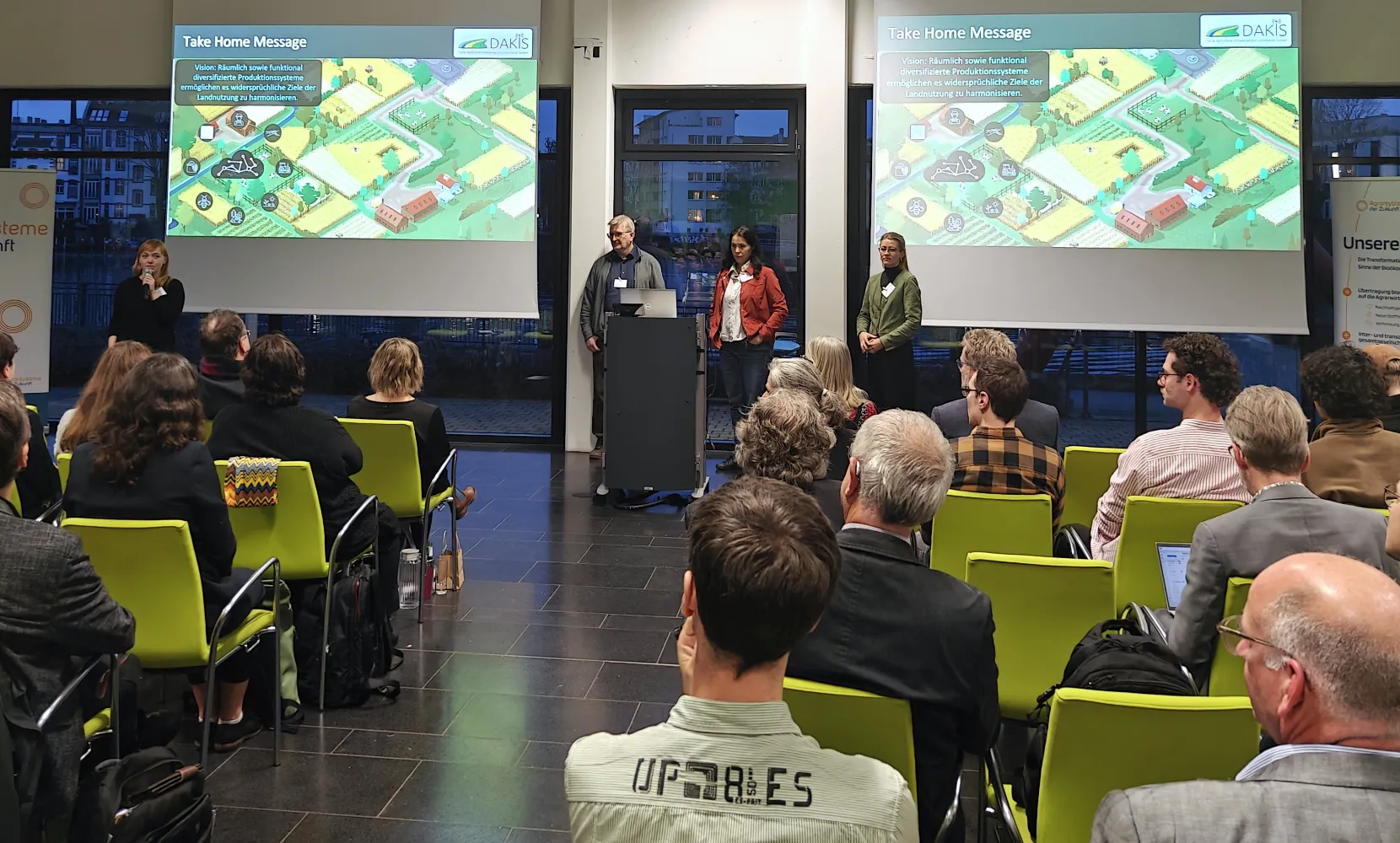Up close and personal with the DAKIS project in Berlin’s FUTURIUM
On October 4, the Futurium in Berlin gave visitors young and old a glimpse into the possible world of tomorrow. On this hands-on day dedicated to science, they were able to “get up close and personal with the future”…and with the DAKIS project, which was represented with a stand in the spacious foyer alongside other consortia of the “Agricultural Systems of the Future“.
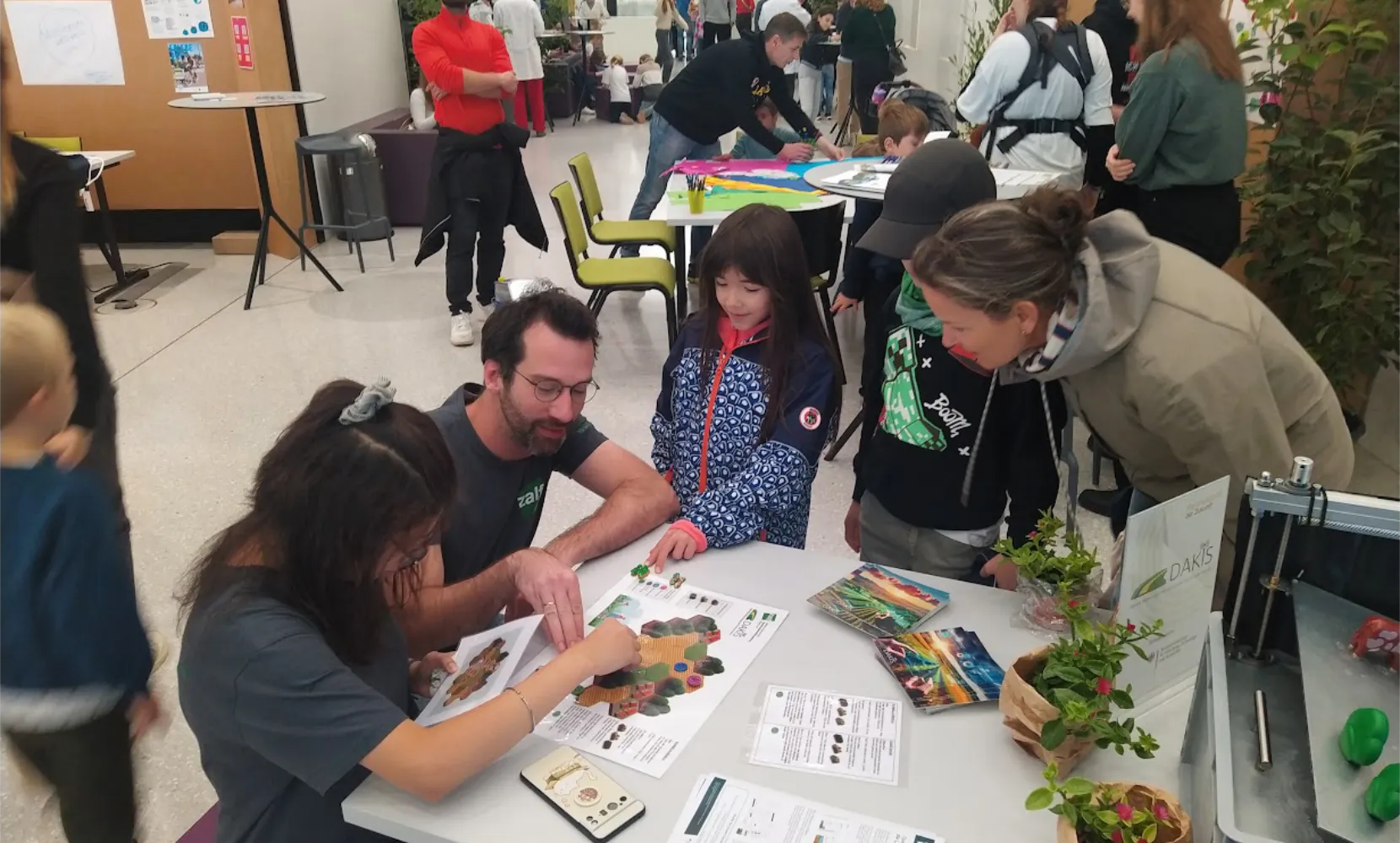
The exhibits presented at the DAKIS stand were diverse and yet all revolved around the topic of “agri-environmental measures and ecosystem services”, which play a central role in the project. DAKIS is developing a digital knowledge and information system for agriculture that optimizes the planning of a wide range of environmental measures based on complex ecosystem service analyses. Curious visitors had the opportunity to test the DAKIS prototype on the tablet computers provided, as well as the associated EROSPOT® application for the optimized, automated placement of insect walls to reduce water erosion on a large screen.
The two digital applications were flanked by analog exhibits that made the underlying concepts more tangible for visitors. Most people can easily understand how an insect wall can increase the occurrence of pollinators in agricultural landscapes by providing flowering food plants and habitats. But how can such an insect wall also stop water erosion through correct placement and design, thus preventing the loss of valuable humus in the fields? The surface runoff simulator made this tangible for visitors: they were able to interactively create different slope characteristics by adjusting screws and test the water retention potential of the insect wall they had formed with plasticine by automatically pumping water.
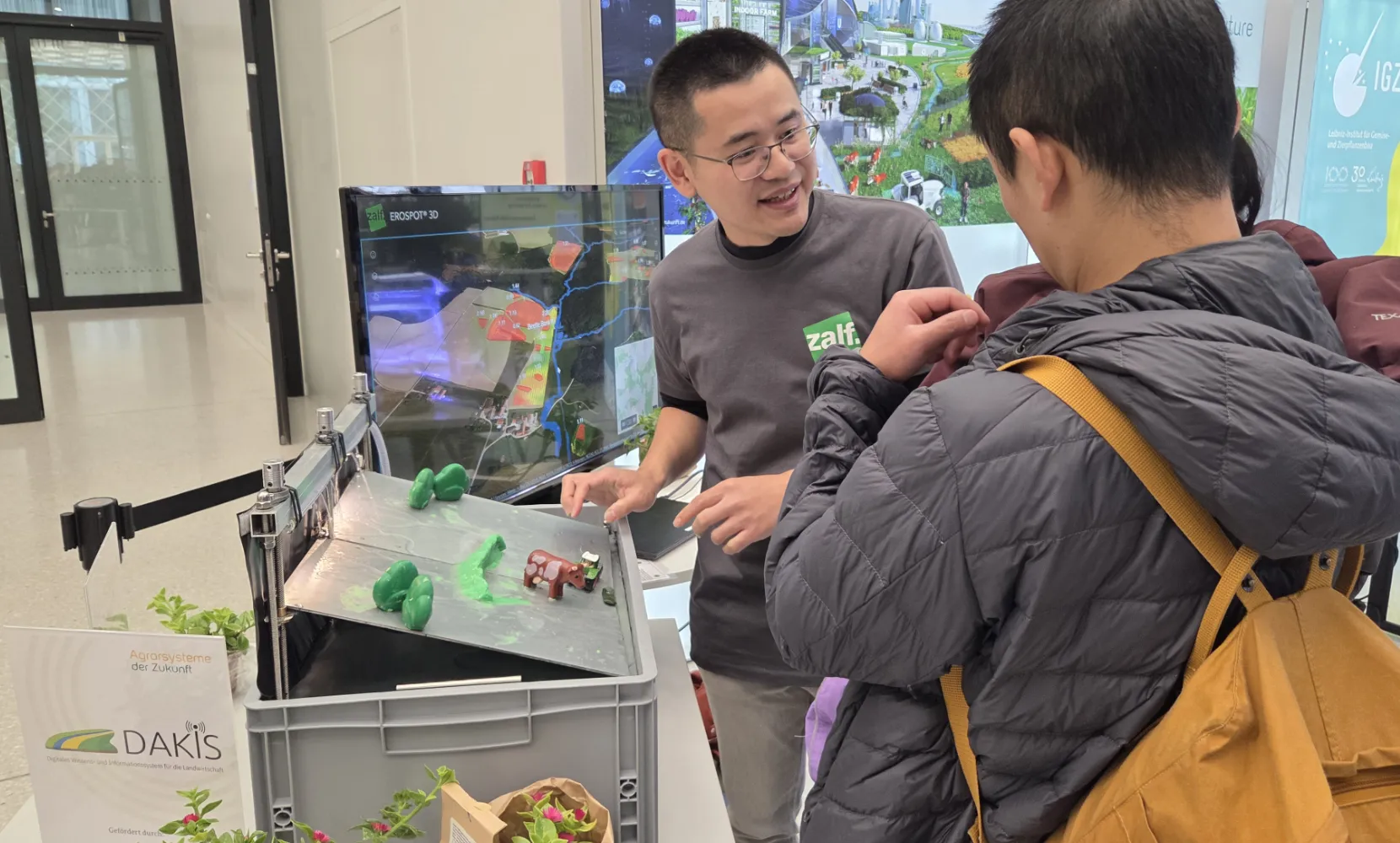
The recently developed DAKIS board game aroused the greatest interest among the younger visitors. It puts players in the role of farmers who have to cleverly place a limited number of hedges, insect walls and flower strips to solve the problems of water and wind erosion and low pollinator populations on their farmland. In the process, they playfully learn about the various ecosystem services of the individual agri-environmental measures and how they can be combined in the most intelligent way to achieve the greatest possible positive effect for the landscape. In keeping with the theme, the prizes were small bags of seed balls, which the successful players can use to improve the food supply for pollinating insects in their real-life environment.
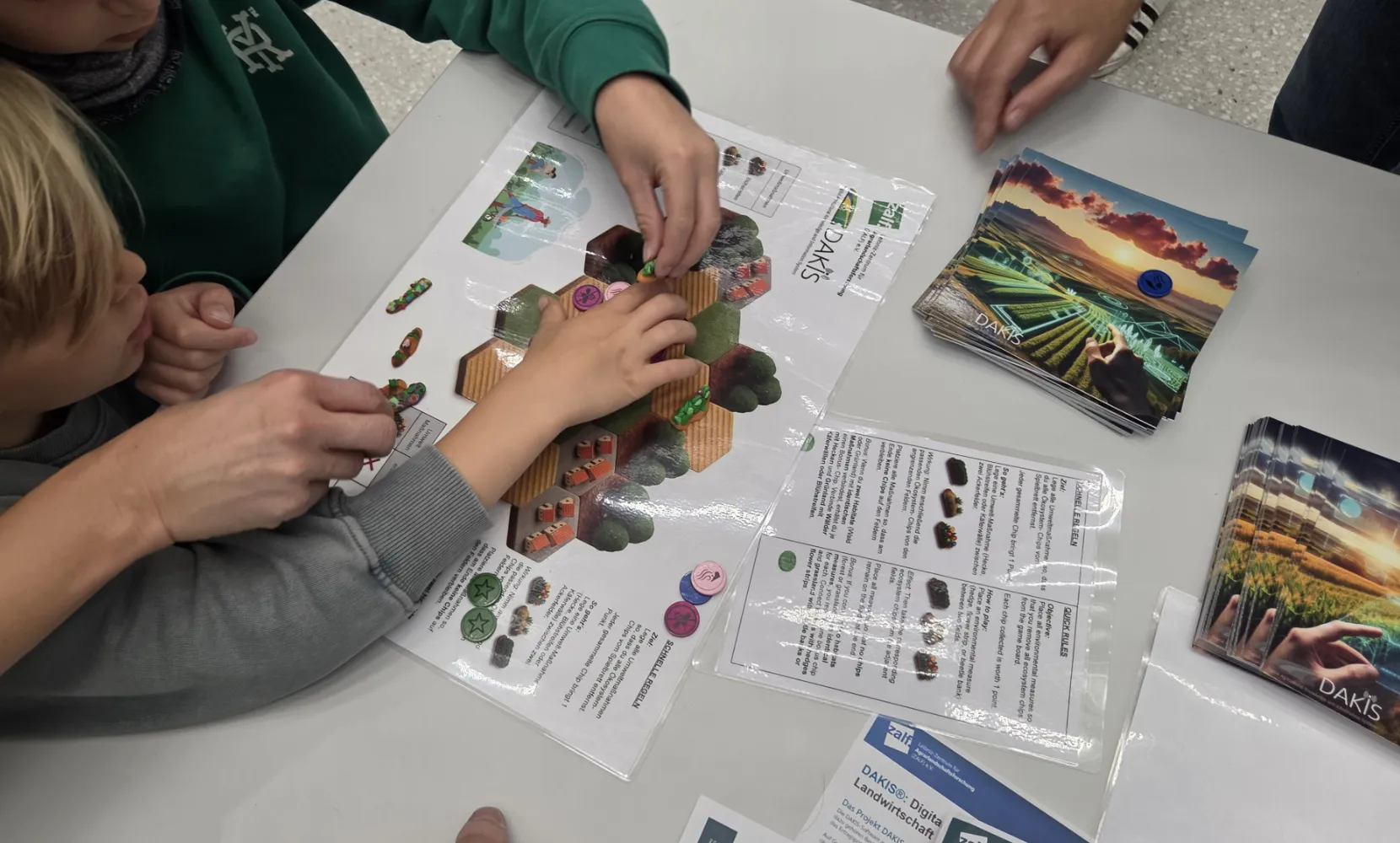
In the agro-quiz “Tomorrow I’ll eat…differently?”, Prof. Dr. Sonoko Bellingrath-Kimura (Coordinator DAKIS) and Prof. Dr. Monika Schreiber (Coordinator food4future) accompanied the families on an exciting journey of discovery into the future of nutrition and gave the participants insights into how research and modern technology help to protect the climate and environment and secure food supplies.
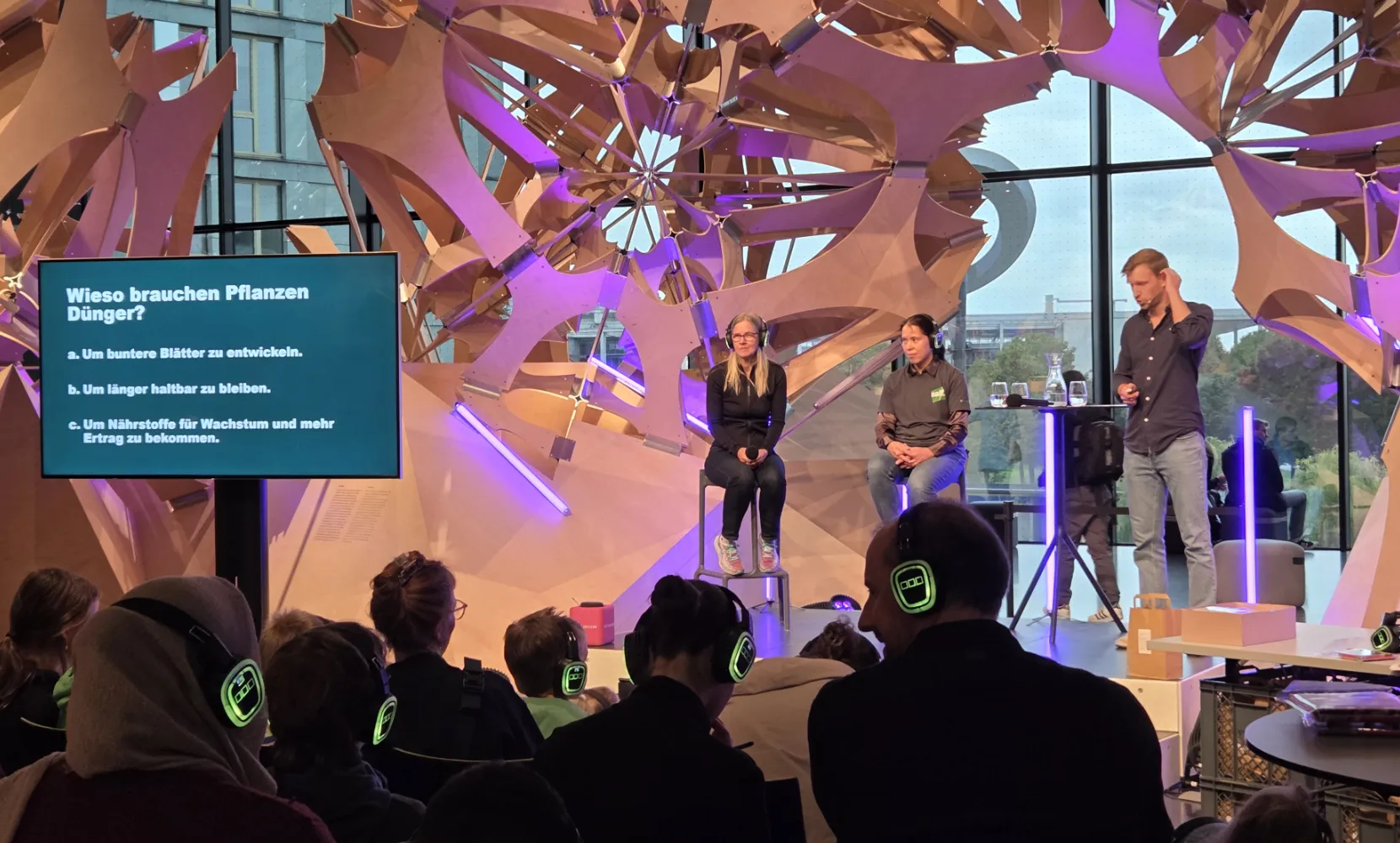
“The audience reacted with great curiosity and enthusiasm. Numerous interested questions, intensive discussions and positive feedback made the day special for us,” summed up Ramona Bruck, project manager of the “Agricultural Systems of the Future” coordination office.

